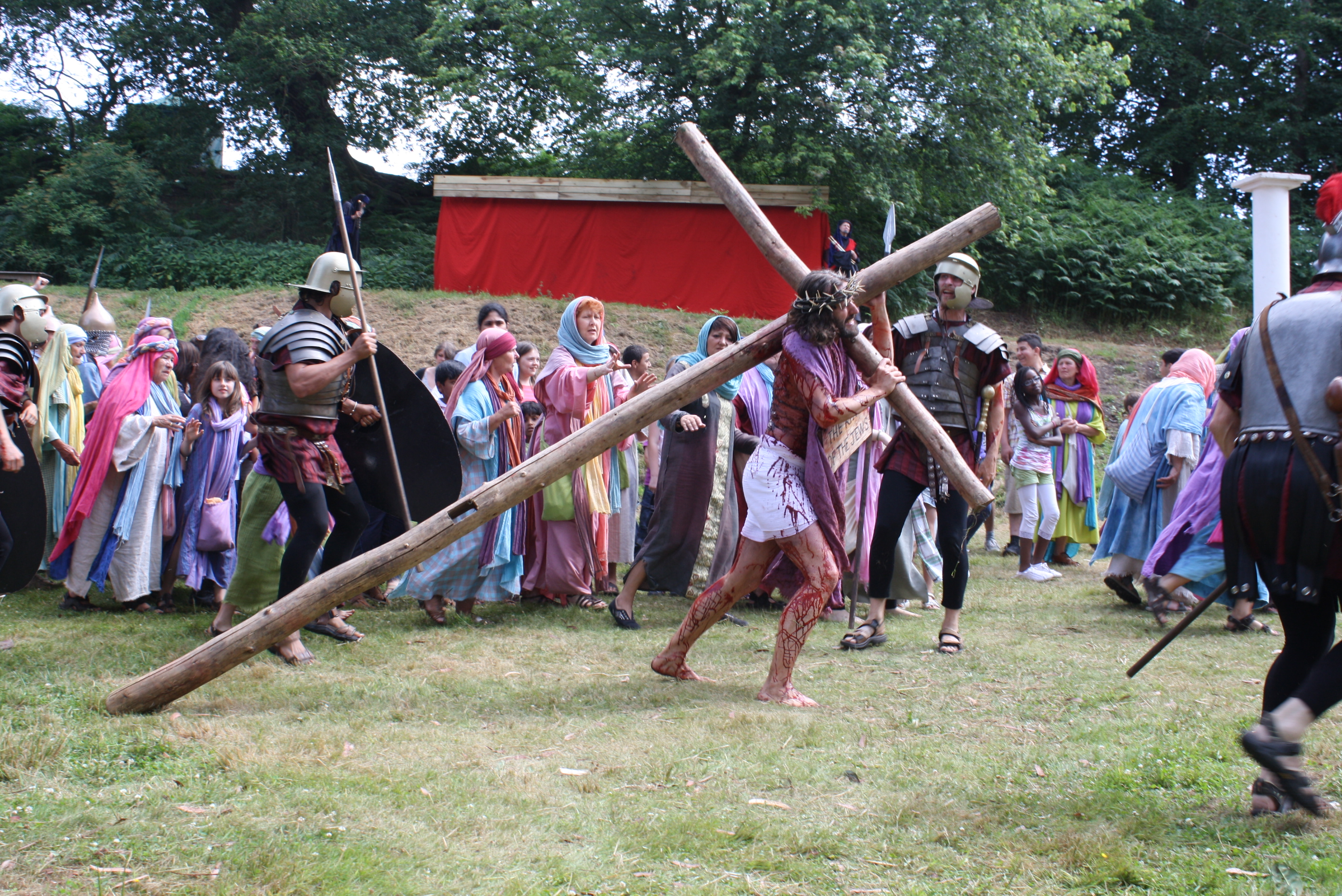Fourteenth Passion Play
Did you know that the earliest reference to a performance of a Passion Play goes back to a fourteenth-century sermon?
A Good Friday sermon dating back to the second half of the fourteenth century, refers to a Passion Play performance. The sermon is based on the passage “Christ has suffered for us, leaving you an example that you may follow in his footsteps,” 1 Peter 2.21. The writer of the sermon urges his listeners to hold on to the true happiness that Christ offers and to scorn worldly pleasures and riches. He refers to a group of actors who were involved in a Passion Play to illustrate his point:
I knew where there once was a play in summertime. One person was Christ, another Peter, another Andrew, some were the tormentors, and some the devils. Christ was stretched out, crucified, and beaten, mocked, and held a fool; he was hungry and thirsty and no one gave him anything but strokes and scorn. And whoever knew how to torment and scorn him best was reckoned to play the best. When the game was over, all the players talked among themselves and considered playing again; and one of them said, “Who shall be Christ?” The others said, “He who played today, since he played well.” This player then said to them: “I was Christ and was crucified, beaten, mocked, held to be a fool; I was hungry and thirsty, and nobody gave me anything. I looked down below and saw tormentors and demons in great joy. For he who could make them drink and eat was well pleased. I looked to the right and saw Peter on the cross, and I looked to the left and saw Andrew on the cross, so that for me and my apostles everything was a pain, but for our tormentors and the demons everything was comfort. And therefore I tell you for sure that if I must play again, I do not want to be Christ nor an apostle but a tormentor or a demon.” One of his companions said to him: “I am astonished that you say so. Don’t you know that it is the nature of our play that the stretched-out Christ and his apostles fare badly and suffer much while the play goes on, and the tormentors and demons are well off? Wait till the end of the play and you shall be well off!”
The sermon writer went on to say:
It goes similarly in this life, in every estate and rank. He who wants to play Christ’s pageant will suffer a lot, will be held to be a fool, will be hungry and thirsty, and nobody will give him anything; but his tormentors and the demons are invited to comforts, and whoever knows how to torment, mock, and do the rest best, he will be held to be a master. And this is the reason why so few play Christ’s pageant and so many become tormentors and demons, so that they draw from the good and move to evil’.
You can read more about this fourteenth-century reference to a Passion Play in the following journal article:
Siegried Wenzel ‘“Somer Game” and Sermon References to a Corpus Christi Play‘ Modern Philology 86 No 3 1989 pp. 274 -283.




